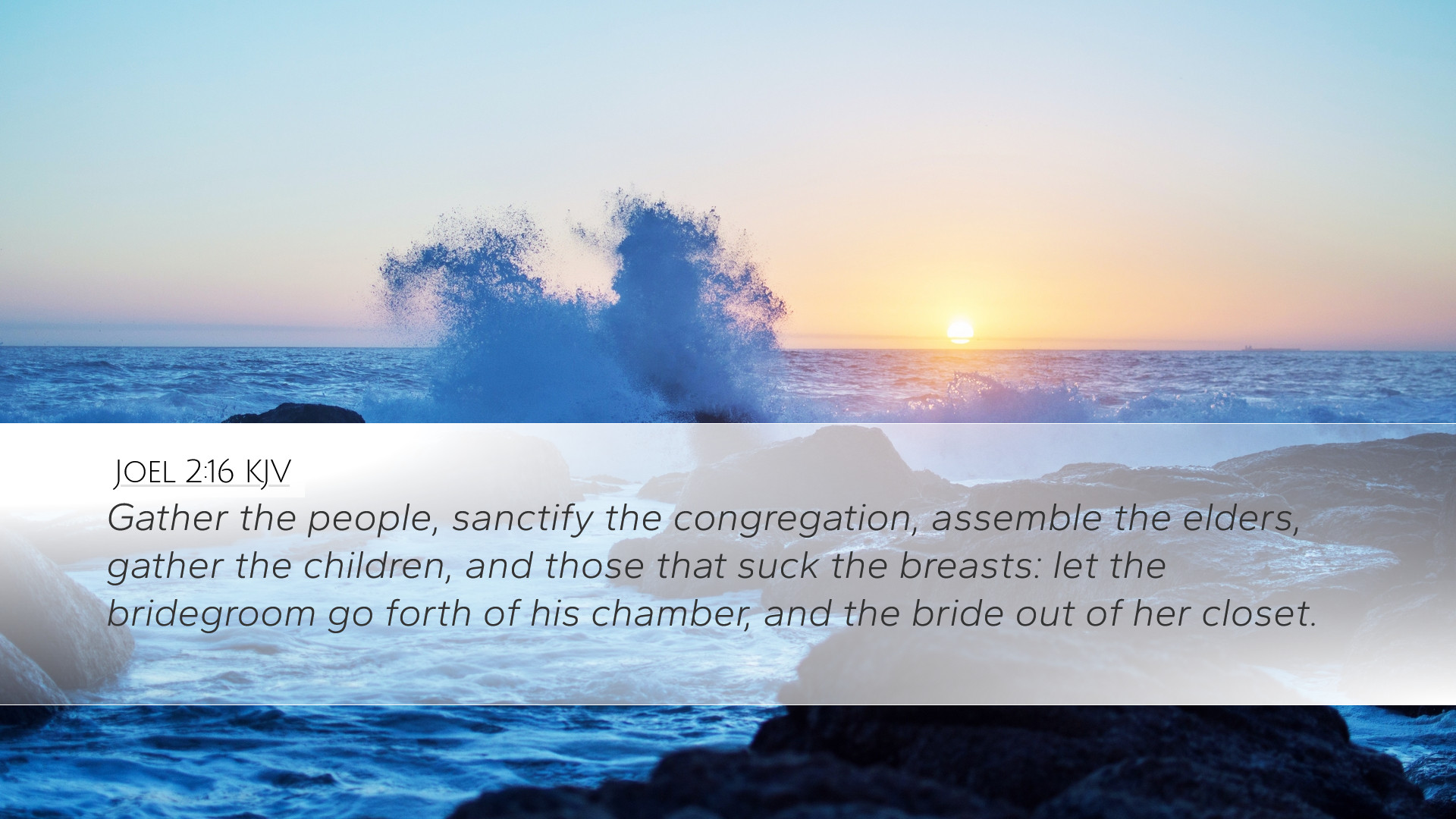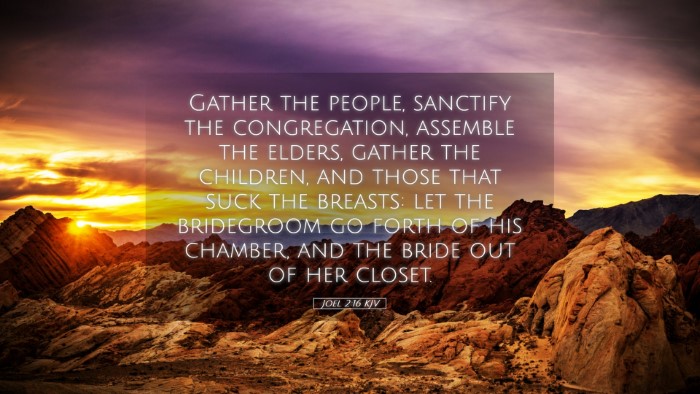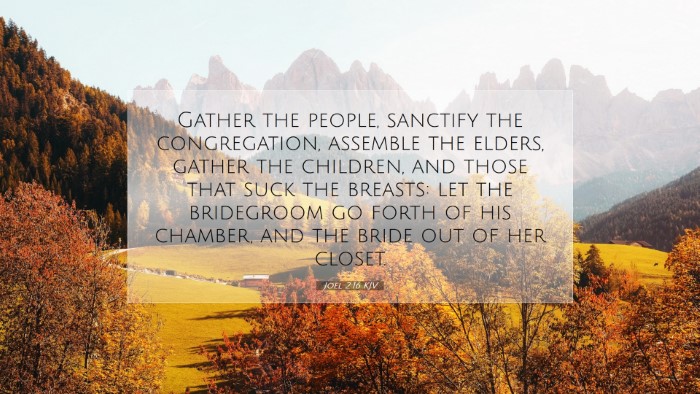Commentary on Joel 2:16
Text: "Gather the people, sanctify the congregation, assemble the elders, gather the children, and those that suck the breasts: let the bridegroom go forth of his chamber, and the bride out of her closet."
Introduction to the Verse
This critical verse in the Book of Joel calls for a collective return to God amidst a profound crisis, marked by plague and desolation. It intricately emphasizes the necessity of communal repentance and the urgency of spiritual renewal. The call to sanctification and assembly reflects the depth of communal need during times of distress.
Contextual Background
Joel prophesies during a time when the land of Judah faces devastation from locust swarms, symbolizing God’s judgment. The prophet’s message pertains not only to a physical calamity but also to the spiritual need of the people to turn back to God. Understanding this context is pivotal as we explore the implications of Joel 2:16.
Exegesis and Analysis
-
Gather the People
Matthew Henry emphasizes that the gathering of the people is a divine command, underscoring the collective nature of repentance. This act symbolizes a united front before God, which is a crucial element in the restoration process.
-
Sanctify the Congregation
Albert Barnes notes that sanctification of the congregation involves a personal and communal cleansing. The holiness of God necessitates that His people approach Him with purity and dedication. This step is vital for receiving God's grace and healing.
-
Assemble the Elders
Adam Clarke points out that elders represent wisdom and authority within the community. Their assembly signifies the necessity of leadership in guiding the people towards repentance and prayer. They play a pivotal role in intercession during crises.
-
Gather the Children
This aspect highlights the inclusivity of God’s call. The mention of children suggests a pure, untainted faith. Matthew Henry suggests that children are symbolic of the future generation; thus, their inclusion represents hope for restoration and continuity of faith.
-
Let the Bridegroom Go Forth
This phrase represents urgent surrender to God amidst societal distractions. The normalcy of marital life is disrupted by the call to worship, indicating that spiritual priorities supersede earthly commitments. Barnes reflects on this with an emphasis on urgency in the spiritual matters of life.
-
Let the Bride Out of Her Closet
This imagery reflects the interruption of personal comforts for the sake of collective worship. The bride is called out of her chamber, indicating that seeking the Lord takes precedence over personal affairs and distractions.
Theological Implications
The theological underpinnings of Joel 2:16 stress the importance of community in worship and repentance. It challenges individuals and communities to recognize their collective sin and need for God’s mercy. The act of gathering serves dual purposes: it fosters unity and magnifies God’s sovereignty in the face of calamity.
Moreover, this verse illustrates God’s desire for a close relationship with His people. The call to gather speaks to the community of faith, emphasizing that God’s grace is not an individual endeavor but a corporate experience wherein all members are called to partake in the divine mercy.
Application for Today
For pastors and church leaders, this call serves as a reminder of the necessity of corporate prayer and response during crises. There is an enduring relevance in inviting the entire congregation—children, elders, and families—to partake in communal acts of repentance and worship today.
Students of theology may find in this verse a rich source for discussions on ecclesiology and the nature of community in worship. It offers a framework for contemplating how contemporary church practices align with the calls for collective sanctity and assembly.
Overall, Joel 2:16 beckons all believers to prioritize their spiritual lives, indicating that in times of trouble, turning towards God as a unified body can lead to healing and restoration.
Conclusion
In summary, Joel 2:16 encapsulates a poignant call to communal repentance and worship that transcends generations. The insights from various scholars emphasize the importance of collective action in seeking God’s face, underscoring the necessity of unity, purity, and priority towards spiritual matters. As such, it challenges us deeply: Are we willing to gather, sanctify ourselves, and approach God amid a world filled with distractions and disruptions?


